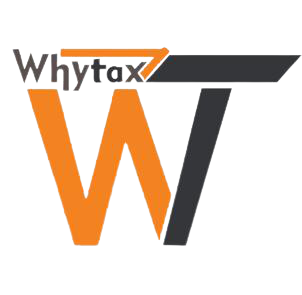A waybill is a receipt or a document issued by a carrier giving details and instructions relating to the shipment of a consignment of goods and the details include name of consignor, consignee, and the point of origin of the consignment, its destination, and route.
Rule 138 of the CGST Rules, 2017 provides for the e-way bill mechanism and in this context it is important to note that “information is to be furnished prior to the commencement of movement of goods” and “is to be issued whether the movement is in relation to a supply or for reasons other than supply”.
Why E-way bill needs?
A consignment value of goods is more than 50,000 for interstate transaction and also for intra state transaction but there is some of exemptions. For Example, for Delhi and West Bengal the limit is more than Rs. 1,00,000/-.
Who should generate the e-way bill?
E-way bill is to be generated by the consignor or consignee himself if the transportation is being done in own/hired conveyance or by railways, by air or by Vessel. If the goods are handed over to a transporter for transportation by road, E-way bill is to be generated by the Transporter. Where neither the consignor nor consignee generates the e-way bill and the value of goods is more than Rs.50, 000/- it shall be the responsibility of the transporter to generate it.
There are two exception:
1. Where goods are sent by a principal located in one State to a job-worker located in any other State, the e-way bill shall be generated by the principal irrespective of the value of the consignment.
2. Where handicraft goods are transported from one State to another by a person who has been exempted from the requirement of obtaining registration, the e-way bill shall be generated by the said person irrespective of the value of the consignment.
E-Way bill to be issued whether for supply or otherwise?
E-way bill is to be issued irrespective of whether the movement of goods is caused by reasons of supply or otherwise. In respect of transportation for reasons other than supply, movement could be in view of export/import, job-work, SKD or CKD, recipient not known, line sales, sales returns, exhibition or fairs, for own use, sale on approval basis etc.
lYou can create E way bill with the below link:
https://ewaybillgst.gov.in/
Notified Goods for which E way bill is not required
a) As per rule 138 of CGST 2017 these goods are specified in the annexure for the movement of those goods e-way bill is not required give as follows.
| S.No. | HSN code | Description of goods |
| 1 | 1001 | Wheat and meslin |
| 2 | 1006 | Rice |
| 3 | ‘0713 | Dried Leguminous vegetables ,shelled, Whether or not skinned or split-other |
| 4 | 1003 | Barley |
| 5 | 1005 | Maize |
| 6 | 1008 | Jawar,bajra,Ragi |
b) Goods being transported by a non-motorised conveyance;
c) goods being transported from the port, airport, air cargo complex and land customs station to an inland con- 145 tainer depot or a container freight station for clearance by Customs;
d) In respect of movement of goods within such areas as are notified under rule 138(14)(d) Of the SGST Rules, 2017 of the concerned State; ande) Consignment value less than Rs. 50,000/-
Validity of E-Way Bill other than over dimensional cargo
| Distance | Validity of EWB |
| Less Than 100 Km | 1 Day |
| For every additional 100 Kms or part thereof | additional 1 Day |
For Over dimensional cargo
| Distance | Validity of EWB |
| Less Than 20Km | 1 Day |
| For every additional 20 Kms or part thereof | additional 1 Day |
Cancellation of E-Way Bill
Where an e-way bill has been generated under this rule, but goods are either not transported or are not transported as per the details furnished in the e-way bill, the e-way bill may be cancelled electronically on the common portal, either directly or through a Facilitation Centre notified by the Commissioner, within 24 hours of generation of the e-way bill. However, an e-way bill cannot be cancelled if it has been verified in transit in accordance with the provisions of rule 138B of the CGST Rules, 2017 . The facility of generation and cancellation of e-way bill will also be made available through SMS.
Consequences of non-conformance to E-way bill rules
If e-way bill is not issue or wherever required, are not issued in accordance with the provisions incorporate in Rule 138 of the CGST Rules, 2017, the same will be considered as breach of rules. As per Section 122 of the CGST Act, 2017, a taxable person who transports any taxable goods without the cover of specified documents (e-way bill is one of the specified documents) shall be liable to a penalty of Rs. 10,000/- or tax sought to be evaded (wherever applicable) whichever is greater.
